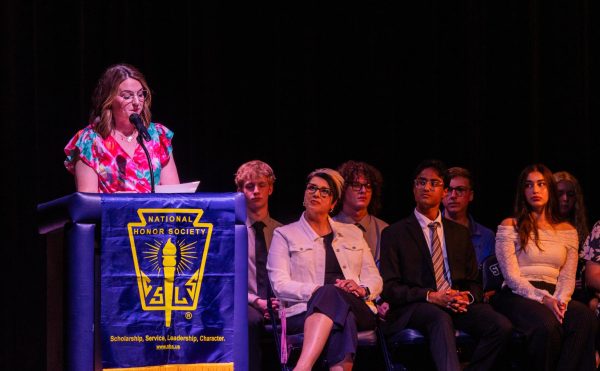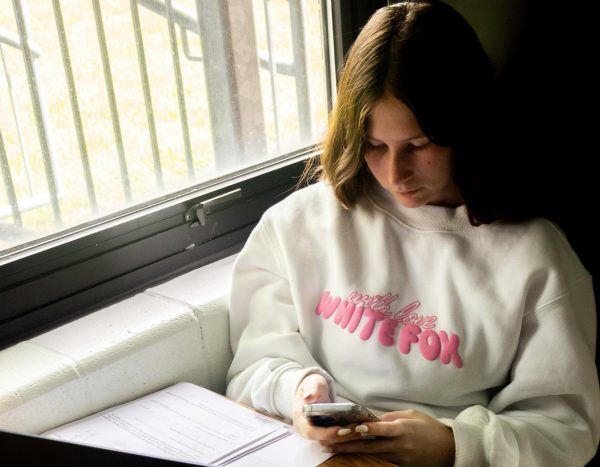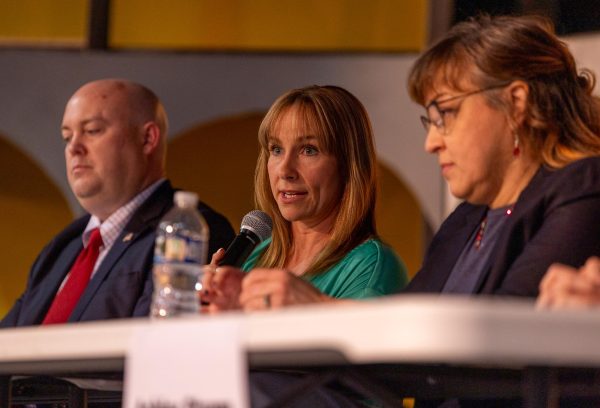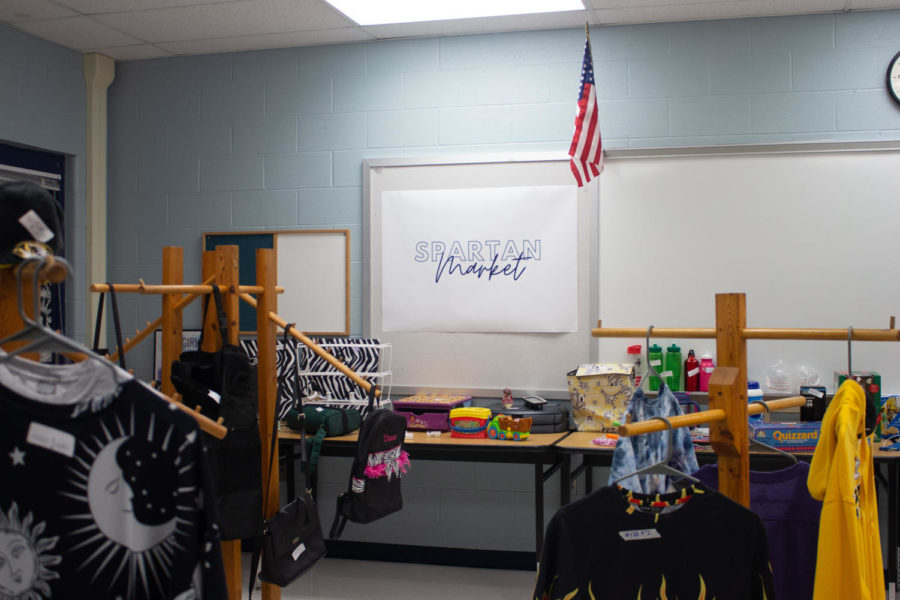Pride and Improvement
All of the items for sale the Spartan market is showcasing in room 96 at FHC.
Junior Clinton Payne, a student in special education, starts off the second hour of the day practicing retail management in the Spartan Market in room 96. His job consists of counting money, sorting used or new donated items, and stocking snacks, while teachers and paras check over his work. By doing so, Payne increases his confidence in communication and retail skills through personal interaction when selling to teachers, and learns to keep a work space tidy while becoming more mature and dependable.
Originally opening for business on Friday, Feb. 10, the Spartan Market offers plenty of items including clothing, holiday decor, other personal items, and snacks like bags of chips. Students in special education do not fully manage the market yet, but instead practice running the store. Currently, only teachers can submit items by filling out a form found here, and can decide the price and whether profits go toward the special education committee or 50/50 between the committee and the donating teacher. The market is open for the deliveries of snacks and sales of items during all hours of the day on Fridays.
Payne said he has fun while finding and entering other teachers’ rooms.
“I’m getting more comfortable with teachers as I [delivered their] mail. You get to see what teacher’s classrooms look like, and the teachers are actually really nice, I enjoy it,” Payne said. ”I think we should deliver more food.”
Snacks were first allowed to be sold on Friday, April 14, but they can only be provided to the teachers. Workers in the market such as Payne have the opportunity to deliver snacks to a requesting teacher’s room by rolling a cart. These deliveries allow students to practice communicating with teachers. Speech pathologist Mrs. Amy Ney-Carder, who has been teaching in the district for nine years, said students felt they were able to admit when they felt something was wrong.
“Our kids are practicing their salesmanship and their customer service in the classrooms now,” Mrs. Ney-Carder said. “I took a student out to do deliveries and he was very anxious and nervous about it. Typically, he’s very confident in the classroom when I talk to him, but in another teacher’s room in front of kids he didn’t know, he immediately shut down, which was unusual for him. And he was able to tell me, ‘Hey, I’m not comfortable in other people’s classrooms.’ That’s huge for him. Normally he would’ve had an attitude and wouldn’t have told me.”
Para in special education and supervisor of the market Mr. Dave Carafiol, who has been teaching for 10 years, said students manage the inventory and have specific jobs, and they’re building a routine.
“They’re responsible for pretty much running a retail store as far as running the inventory, making deliveries, counting the cash drawers, and keeping the money safe. They have to be dependable. You have to show up, do your job right, and be honest and trustworthy,” Mr. Carafiol said. “I see a lot of growth as far as their confidence. They’re excited to go out and communicate. They work hard and are becoming more dependable as they learn and become more comfortable in their roles.”
Additionally, when students feel shy, Mr. Carafiol provides a script, but they’re mostly on their own. Mrs. Ney-Carder says students in special education are making vast improvements in jobs that most students didn’t even know they worked, including baking cookies with Coach Mr. Steven Cross, dropping off teacher’s mail, and stocking the drinks in the cafeteria.
“Today I just said here’s a stack of items. They are all $1. You put them in. He’s doing it by himself. I’m gonna go make sure he did it right, but he knows the procedure. He’s getting more comfortable with asking when he doesn’t know, which is an improvement,” Mrs. Ney-Carder said. “They’re starting to keep track of their schedules, but reviewing expectations pretty much constantly.”
Also, Mrs. Courtney Jilek, a teacher in special education who has been teaching in the district for 11 years, said task initiation is a large goal that teachers work on.
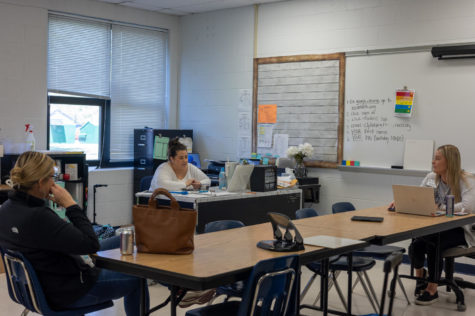
“We give the students a task list. They know the things that they want to do, but sometimes whenever they finish a task, they just stand around instead of being like, ‘What’s the next thing that I could do?’” Mrs. Jilek said. “They have to be able to initiate the tasks that need to be done, and that’s something we work on every day.”
Your donation will support the student journalists of Francis Howell Central High School. Your contribution will allow us to purchase equipment and cover our annual website hosting costs. FHCToday.com and our subsequent publications are dedicated to the students by the students. We hope you consider donating to allow us to continue our mission of a connected and well-informed student body.




